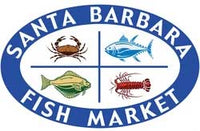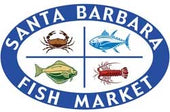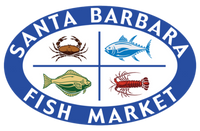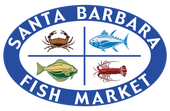Dulse - Palmaria mollis
Also
known as: Pacific Dulse, Red Ribbon,
Ribbon Seaweed, Red Kale, or Thin Dulse
Dulse is a red algae (seaweed) with leathery fronds (leaves) that attaches itself to rocks in the North Atlantic and Northwest Pacific oceans. Our local Dulse, the Palmaria mollis, is native to the Gaviota point. It is perennial, and when either plucked or cut, new growth appears from the edge of the previous season's leaves. It is also known as Pacific Dulse, Red Ribbon, Ribbon Seaweed, Red Kale, or Thin Dulse
These marine plants are the vegetal ancestors of all life forms on the planet today, dating back over 3.2 billion years. Sea vegetables are the first food of the plant kingdom and the foundation of our food chain. When the primal waters became saline, it was the ingestion of sea vegetables that led to the development of the first invertebrates.
Sea vegetables are amazingly nutrient-rich -- a veritable medicine chest of proteins (25%) and complex carbohydrates, all 44 trace minerals and elements, and vitamins A, C, E, B1, B2, B6, and B12.
These essential elements and trace minerals nourish the lymphatic, nervous, and endocrine systems. The alginic acid in seaweed seems to bind with radioactive isotopes and heavy metals to help flush them from the body. Seaweeds also help stabilize weight by balancing the thyroid—evening out an overactive thyroid as well as nudging a sluggish one--with their iodine content. Sea vegetables are especially high in iron, calcium and iodine, which is fundamental to brain function and stress reduction. The sea salt in seaweeds is free from the sodium chloride and free-flowing agents added to table salt. This may be why seaweeds seem to lower blood pressure despite their salt content. The high protein content of Dulse, and especially the Vitamin B12, are especially valuable for vegetarians.
The Cultured Abalone farm located at Dos Pueblos Ranch in Goleta farms our Dulse. It is tumble-cultured in fresh seawater tanks filled from intakes 40 feet deep and 400 yards offshore. The Palmaria mollis likes cold water, and therefore is a winter-spring “crop”. (We will be offering Gracilaria pacifica aka “ogo” in the summer and fall, also grown by The Cultured Abalone farm.)
Do not rinse the seaweed in fresh water--the cell membranes will rupture, and the seaweed will develop a fishy smell. It will keep for at least a week in the refrigerator in the plastic bag. Just prior to preparing it, you can quickly rinse with cool water.
Dulse compliments potatoes, eggs, vegetables, rice, casseroles, soups and chowders. Fresh Dulse can be sautéed with butter and garlic, or rubbed with olive oil and roasted in the oven to make chips. Try frying up pieces of kelp in a skillet--they're better than potato chips.



